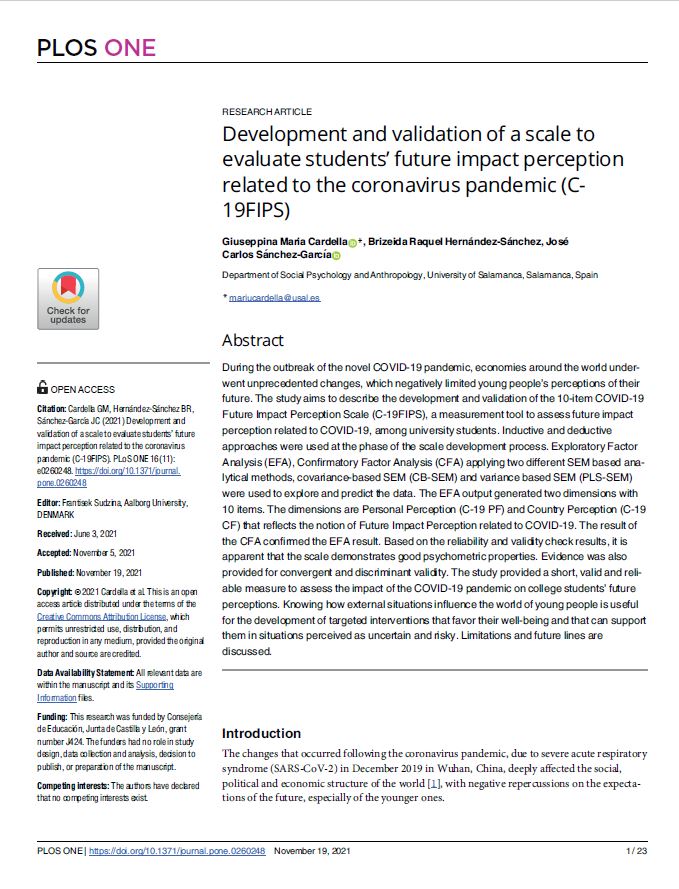¿En qué podemos ayudarte?
Development and validation of a scale to evaluate students’ future impact perception related to the coronavirus pandemic (C-19FIPS)

Tipo: artículo
Idioma: Inglés
Título:
Article
Development and validation of a scale to evaluate students’ future impact perception related to the coronavirus pandemic (C-19FIPS)
Abstract
During the outbreak of the novel COVID-19 pandemic, economies around the world underwent unprecedented changes, which negatively limited young people’s perceptions of their future. The study aims to describe the development and validation of the 10-item COVID-19 Future Impact Perception Scale (C-19FIPS), a measurement tool to assess future impact
perception related to COVID-19, among university students. Inductive and deductive approaches were used at the phase of the scale development process. Exploratory Factor Analysis (EFA), Confirmatory Factor Analysis (CFA) applying two different SEM based analytical methods, covariance-based SEM (CB-SEM) and variance based SEM (PLS-SEM) were used to explore and predict the data. The EFA output generated two dimensions with 10 items. The dimensions are Personal Perception (C-19 PF) and Country Perception (C-19 CF) that reflects the notion of Future Impact Perception related to COVID-19. The result of the CFA confirmed the EFA result. Based on the reliability and validity check results, it is apparent that the scale demonstrates good psychometric properties. Evidence was also
provided for convergent and discriminant validity. The study provided a short, valid and reliable measure to assess the impact of the COVID-19 pandemic on college students’ future perceptions. Knowing how external situations influence the world of young people is useful for the development of targeted interventions that favor their well-being and that can support
them in situations perceived as uncertain and risky. Limitations and future lines are discussed.
Autores:
Giuseppina Maria Cardella
Brizeida Raquel Hernández-Sánchez
José Carlos Sánchez-García
Publicación:
Department of Social Psychology and Anthropology, University of Salamanca, Salamanca, Spain
PLoS ONE 16(11):
e0260248. https://doi.org/10.1371/journal.pone.0260248
Año: 2021
Aportado por: Brizeida Raquel Hernández Sánchez